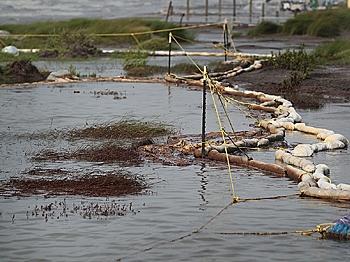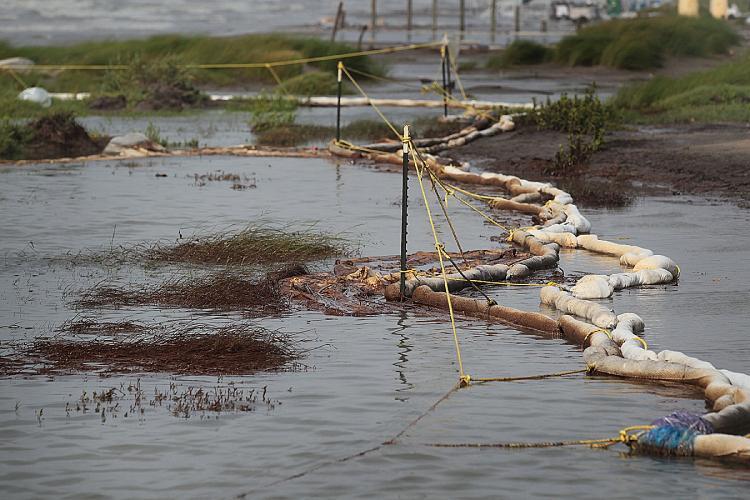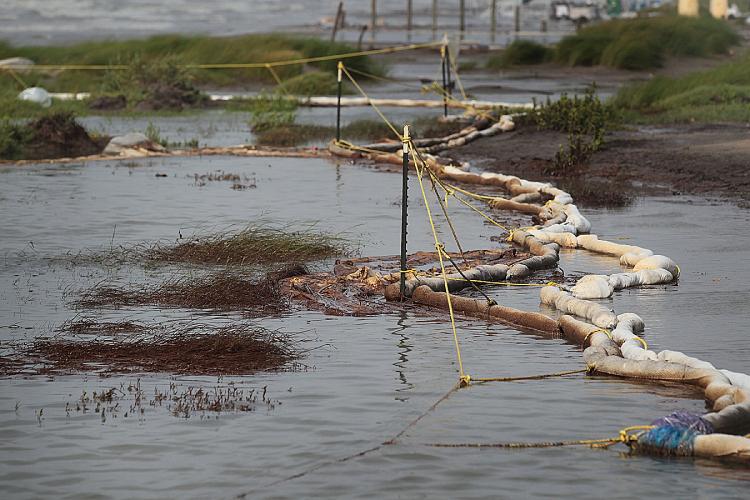Oil spills can increase the levels of toxic arsenic in the ocean, creating a long-term threat to marine ecosystems, according to researchers from Imperial College London.
Arsenic occurs naturally in seawater, but in high concentrations it can cause birth defects in sea life, disrupt photosynthesis in marine plants, and enter the food chain, killing birds and other animals that feed on the creatures affected.
As well as containing arsenic, oil can clog the natural filtration system in seafloor sediments that removes arsenic from seawater, said the scientists in the journal Water Research.
“We carried out our study before the leak in the Gulf of Mexico occurred, but it gives us a big insight into a potential new environmental danger in the region,” said lead author Wimolporn Wainipee in a press release.
“Thousands of gallons of oil are leaked into the world’s oceans every year from big spills, offshore drilling, and routine maintenance of rigs, which means many places may be at risk from rising arsenic levels.”
Arsenic occurs naturally in seawater, but in high concentrations it can cause birth defects in sea life, disrupt photosynthesis in marine plants, and enter the food chain, killing birds and other animals that feed on the creatures affected.
As well as containing arsenic, oil can clog the natural filtration system in seafloor sediments that removes arsenic from seawater, said the scientists in the journal Water Research.
“We carried out our study before the leak in the Gulf of Mexico occurred, but it gives us a big insight into a potential new environmental danger in the region,” said lead author Wimolporn Wainipee in a press release.
“Thousands of gallons of oil are leaked into the world’s oceans every year from big spills, offshore drilling, and routine maintenance of rigs, which means many places may be at risk from rising arsenic levels.”






